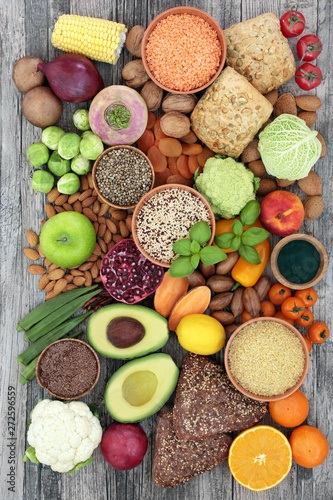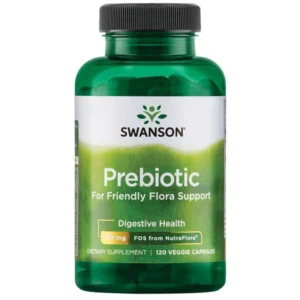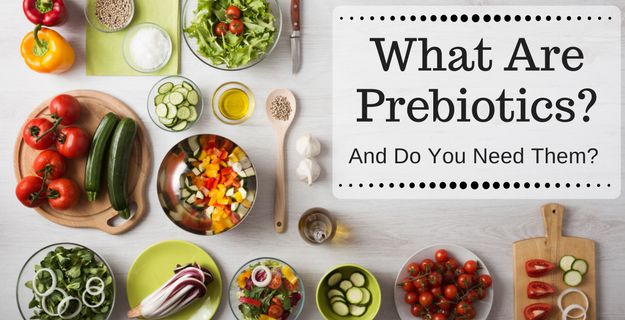Our gut is essential to our overall health. The gut is responsible for the health of our digestion, defense system, brains, moods, and even our quality of sleep. In fact, about 70 percent of the immune system (reference)
is based in the gut, so making sure it is in excellent shape can be vital in addressing many of our bodily afflictions. But how do we keep our gut healthy? One of the items that keep the gut healthy is probiotics, which are bacteria, but of the friendly type. However, another item that contributes to the gut’s health is called prebiotics. Mutually probiotics and prebiotics are beneficial for the gut, but they assist differently. So, what are prebiotics, and what do they do? This article explains what are prebiotics about.
What are Prebiotics?
Prebiotics are special plant fibers that are carbohydrates that the body cannot digest and travel to the lower digestive tract and do their work. They are a source of food for bacteria, the good bacteria that keep the gut healthy. Therefore, in other words, prebiotics feeds probiotics; they act as fertilizers for the gut.
The good bacteria in the digestive tract assist in protecting it from harmful microorganisms and fungi.
A 2013 study on bacteria in the gut substantiates that an expansive assortment of this good type of bacteria can improve the symptoms of depression, aid immune system functions, and help address obesity, among other benefits (reference). Also, some of the gut bacteria form vitamin K and short-chain fatty acids.
Short-chain fatty acids are the primary nutrient resource of the cells that line the colon. They support a strong gut barrier that aids in keeping out harmful viruses, bacteria, and substances. This additionally aids in reducing inflammation and can have the ability to reduce the risk of cancer (reference).
The Health Benefits of Prebiotics
On top of nourishing the good gut bacteria, prebiotics can also:
- Alter the speed that foods produce increases in blood sugar (the glycemic index)
- Help absorb calcium
- Increases the fermenting of foods faster, causing them to spend less time in the digestive system. This avoids constipation.
- Maintains the cells that line the gut keeping them healthy
Recent studies have been investigating if prebiotics can assist the managing of gut diseases such as irritable bowel syndrome and how they might be a factor in controlling obesity.
Foods that have Prebiotics
Prebiotics can be found in numerous fruits and vegetables as well as whole grains, including:
- Yacon root
- Wheat
- Tomatoes
- Soybeans
- Onions
- Oats
- Legumes (peas and beans)

- Leeks
- Konjac root
- Green vegetables
- Garlic
- Flaxseed
- Dandelion greens
- Cocoa
- Chicory
- Berries
- Barley
- Bananas
- Asparagus
- Artichokes
- Apples
Many fruits and vegetables are high in fiber. Fiber advances the growth of beneficial gut bacteria, including certain kinds like Bifidobacteria.
Prebiotic Supplementation
The thing to understand about supplements is that there are many types. For example, one type of bacteria commonly used is lactobacillus. However, there are in excess of 120 kinds of lactobacillus, and approximately a dozen of them are used as probiotics.
In addition, there are several other kinds of bacteria, each of them with dozens of species, making a bewildering assortment of obtainable  probiotics. When one type of bacteria is selected, the quantity in the supplement may differ between brands.
probiotics. When one type of bacteria is selected, the quantity in the supplement may differ between brands.
When considering a prebiotic, analyze the condition that requires attention and select the prebiotic based on that condition. It is important to note that while a probiotic can demonstrate potential in treating a gastrointestinal situation, it is probable that the research is still in its infancy.
While the supplement can have made a condition better for a small number of individuals in a minimal situation, it may not work as well in an actual setting. As always, when considering taking a supplement, consultation with a healthcare professional is advised.
Prebiotic Side Effects
According to reliable sources, a majority of prebiotics, as well as probiotics, can be used safely without side effects by the majority of adults that are healthy. In a few instances, abdominal discomfort, bloating, and flatulence can arise while the digestive system adjusts to the additional activity.
However, individuals who have IBS or any other gastrointestinal disorder should consult with their healthcare provider to get tailored guidance for incorporating prebiotics into their diet.
Summary
Keeping the gut bacteria balanced is essential for many aspects of health.
To accomplish this, one should consume plenty of prebiotic and probiotic foods because they help with promoting the ultimate balance between good and bad gut bacteria.
Speak with a healthcare provider to ensure the proper amounts of each are consumed. It is possible to consume too much or obtain side effects.
To evaluate the benefits of taking a supplement, log on to the World Gastroenterology Organization Global Guidelines list of evidence-based conditions that probiotics could potentially assist with aiding. What’s more, it includes recommendations.
Be sure to read the labels on any supplements cautiously and address any questions and recommendations with your healthcare provider.
Would you please leave any questions, comments, concerns, or experience with prebiotics below?
Good Health!!
